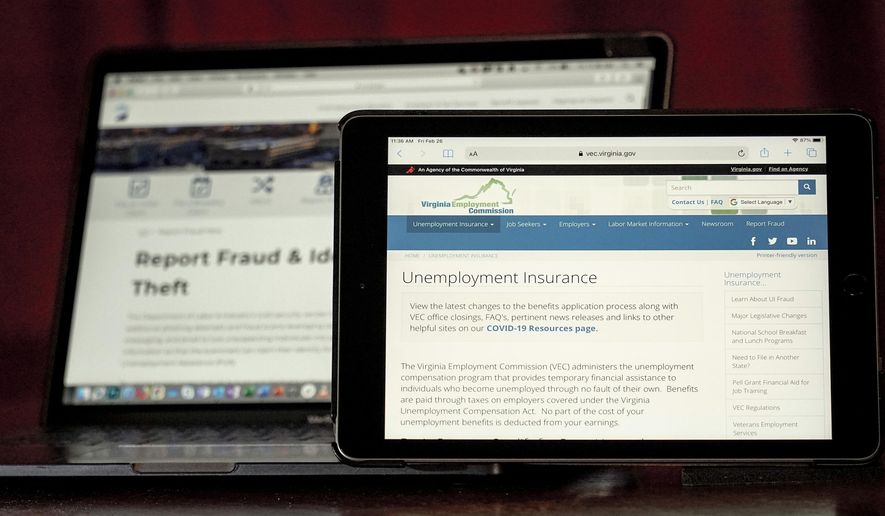Michigan paid out more than $3.3 billion on pandemic unemployment claims to people who had no history of work or wages earned in the state, according to a new audit that said officials intentionally shut down anti-fraud checks to speed up payments.
Now, the state is about to bump up against the three-year time limit for trying to claw back some of those overpayments, Michigan’s auditor general says.
The audit portrays the state’s Unemployment Insurance Agency (UIA) as bungling its way through the early days of the pandemic, rushing to get money out the door with little regard for the crush of bogus claims that flooded in alongside legitimate ones.
UIA’s director at the time urged staffers “not to find fraud against claimants.” The director also told them not to question applicants who claimed they had been self-employed, auditors said, citing emails they obtained during the investigation.
Fraud investigators were taken off the job and assigned to process new claims.
And the agency’s automated fraud detection system was intentionally disabled, the audit found. It no longer weeded out applications filed from blacklisted internet addresses or those coming from outside the state.
The result was faster payments but also massive potential fraud.
In a random sampling of 60 claims, auditors found a third of them showed suspicious assertions of self-employment that should have been followed up.
The agency director who ordered staffers to accept fraudulent unemployment claims left the job in late 2020.
Compounding the bungles, the agency already has waived billions of dollars in overpayments, saying it’s money the state won’t try to collect.
Auditors, in their report released last week, reviewed 60 of those cases and found in a third of them still unresolved questions about eligibility.
“By closing these issues without review and adjudication, when applicable, UIA likely missed opportunities to identify imposter claims, claimants misrepresenting their attachment to the workforce, and other issues that should have resulted in UIA enforcing repayment and pursuing fraud investigations,” the audit concluded.
The audit also found another $280.7 million in payments that might have qualified for a waiver but where one wasn’t offered.
Then there were 314,00 claims paid to people who had no history of wages earned in the state, according to tax and employment records. That strongly suggested they were not, in fact, part of the state’s unemployed workforce.
The state still paid them a total of $3.3 billion in unemployment claims through November 2020.
At that point, a review questioned the payments, and officials decided to take action. But no changes were made.
Neither the unemployment agency nor the state’s Department of Labor and Economic Opportunity could explain why.
During 2021, it did conduct a re-verification of the applications, but it still paid out an additional $1.5 billion on those claims.
Congress authorized emergency unemployment assistance early in the pandemic as part of a strategy to keep the economy afloat. The federal government pumped cash into the hands of out-of-work Americans, while also extending loans to small businesses to try to keep people on their payrolls.
The emergency unemployment benefits were on top of what states already paid, and created a significant incentive for workers to stay out of the job market.
But the goal of getting money out the door meant usual checks were nixed, and fraudsters realized it was easy to steal cash.
That pattern played out in states across the country, though analysts said places like California and Michigan were particular targets.
Last week’s audit in Michigan found $10.2 billion in pandemic unemployment payments that were suspect. Most of that was paid to people who weren’t required to attest that they met one of 11 criteria for receiving enhanced benefits.
The unemployment agency insisted it has made substantial progress in fixing its problems. That includes trying to fix programming snafus and trying to get an accounting of overpayments.
“We are doing this again and again and again,” Julia Dale, the agency’s current director, told reporters Friday, according to The Detroit News. “And at what point do we say we have addressed these issues, we have demonstrated our commitment to righting past wrongs and we’ve been transparent about the actions we’ve taken? Why do we keep revisiting these matters?”
For more information, visit The Washington Times COVID-19 resource page.
• Stephen Dinan can be reached at sdinan@washingtontimes.com.




Please read our comment policy before commenting.